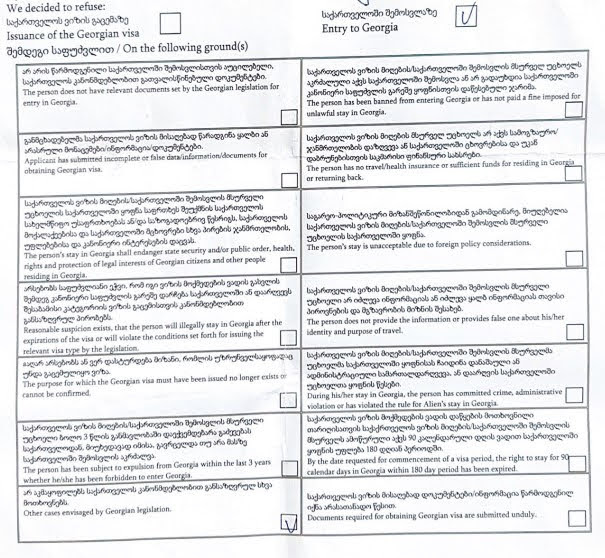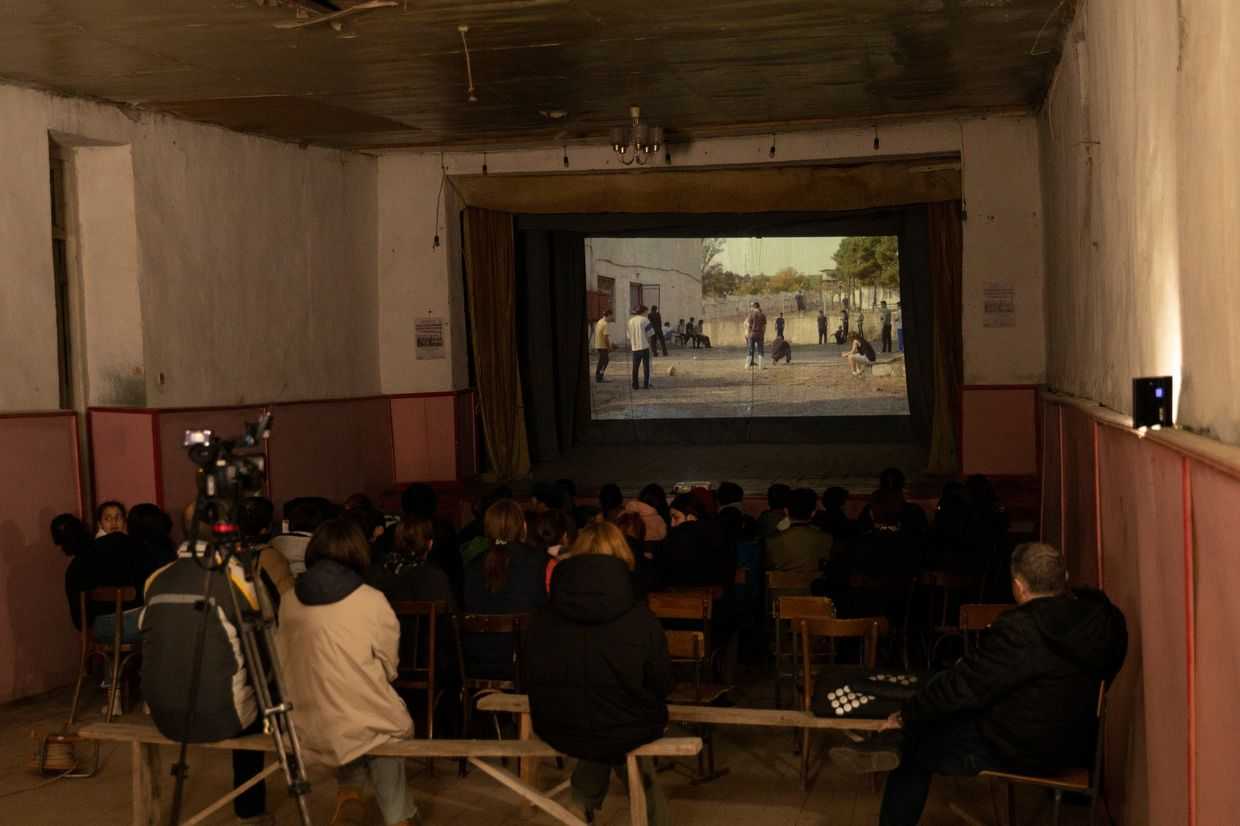
A British citizen has claimed to have been the victim of racial profiling upon her arrival in Tbilisi International Airport after she was refused entry into the country and quickly deported without explanation.
Leila (not her real name), who was born in Tehran but moved to Britain as a child, told OC Media that she was denied entry to Georgia last week. She was visiting Georgia as part of her PhD research into Georgian culture.
Leila was travelling with her husband Stewart (not his real name), whom she said was let through ‘no questions asked’ and without any delay. She said that the only difference between her and her husband was that she was a woman and born in Iran, while Stewart is a British-born UK citizen.
The young academic claimed that on 26 April, Tbilisi International Airport’s passport control interrogated her about the purpose of her visit and how much money she had. Her passport was eventually taken away to be checked.
Leila said that several police officers were rude to her, raising their voices at her when she tried to find out if there was a problem.
Leila also told OC Media that border police officers prevented her from speaking to her husband, whom they also ‘shouted at’ as he tried to find out what the problem was.
Leila was eventually escorted back to the plane to Munich. She said the pilot and main flight attendant who were recalled to pick her up looked ‘shocked and confused’ by the situation.
‘This is at 05:17, and while trying to contact the [British] embassy, and communicating with my husband and the plane crew, I started to get really overwhelmed and I started crying. At this point, the border police officer started laughing, pointing at me, and mocking me in Georgian’.
She said her Georgian was not good enough to understand whether hate speech was used, but that she ‘had never been so dehumanised’.
The police officer escorting Leila refused to return her passport and the official notice for her denial of entry until she had boarded the plane — and even then he only gave the documents to the flight attendant.
The official notice denying a person entry into the country includes a list of 14 possible reasons. Leila’s denial of entry was listed under ‘other cases envisaged by Georgian legislation’, one of the most common and deliberately vague justifications given to people who aren’t allowed into the country.

‘No other explanation than racism’
Leila believes that racial profiling and racism were the real reason she was turned away at the airport.
‘The only thing I can think of is my place of birth, because if you look at my passport, it says “Tehran”. And I think it’s also the way I look; I’m not white, I have dark hair’, Leila said. ‘They did not ask me any questions about my research. I had all the documents, Airbnb booking, and a flight [ticket] back out of Georgia.’
‘I left Tehran with my parents in 2008 and have not travelled back to Iran since’, she said, adding that her parents’ work for British media led to ‘harassments by the Iranian authorities’, which prevented them from staying there. She became a British citizen in 2014.
Leila said that she had previously visited Georgia three times over the past six years, and while she was asked ‘a lot of questions’ about the nature of her visit each time, she was never refused entry before.
The newly-wed British couple, both young academics, were on their way to Georgia to continue their respective research — both connected to Georgian culture — on local carpet weaving and traditional music.
They had planned on celebrating their marriage with their family and friends before continuing their research and organising a conference in Tbilisi.
‘We have strong friendships [in Georgia] and love for Georgian culture’, Stewart told OC Media.
Leila said that the ‘one-hour’ experience she had at Tbilisi International Airport affected both her personal and professional plans, including her research.
‘One hour has changed two years of my life and that’s how ridiculous it is, just because of some racist police officers, I now have to change everything. I don’t want to come back to Georgia any time soon. I’m not going to go somewhere I’m not welcome, and I had to change my research [topic] as well’.
The British couple said that they had already reached out to British Embassy in Tbilisi about the incident. They said that the embassy found the incident ‘quite shocking’ and claimed it was looking into the matter.
At the time of publication, the British Embassy had not commented on the incident or replied to our request for comment.
Leila’s experience at the airport’s passport control corroborates widespread reports that Georgian border police discriminate against foreign arrivals having any connection with Iran.
Leila said that she also witnessed another Iranian family, presumably based in Europe, ‘being shouted at’ by border police before being eventually let through.









